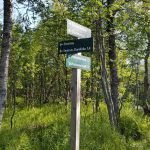Greetings Earthlings! Please allow me to introduce myself and the focus of my studies. My name is Steve Guardi, originally from the village of Johnsburg in northern Illinois and currently finishing up my bachelor’s degree in Conservation Science and Management at the University of Washington. It is a pleasure to be representing the Gilman International Scholarship Program through the Gilman Global Experience Blog. I will be reporting on my immersive studies with the indigenous Sāmi communities in Sāpmi (or Norway as the “land of the Sāmi” is so named today). Rather than using the nation state’s name of Norway to represent this place, I will insist on referring to it as Sāpmi.
With the intention of broadening my western education with traditional ecological knowledge from across the globe, I will be focusing my research on the ways in which the Sāmi are connected to the land, their use of place-based song, and their struggle to retain their identities in a world that is still facing the onslaught of colonization and assimilation. Records show that the Sāmi people first inhabited this part of the arctic sometime between 11,000 and 10,000 BCE, so naturally it would make sense to assume they have a good idea of how humans ought to interact with the natural world.
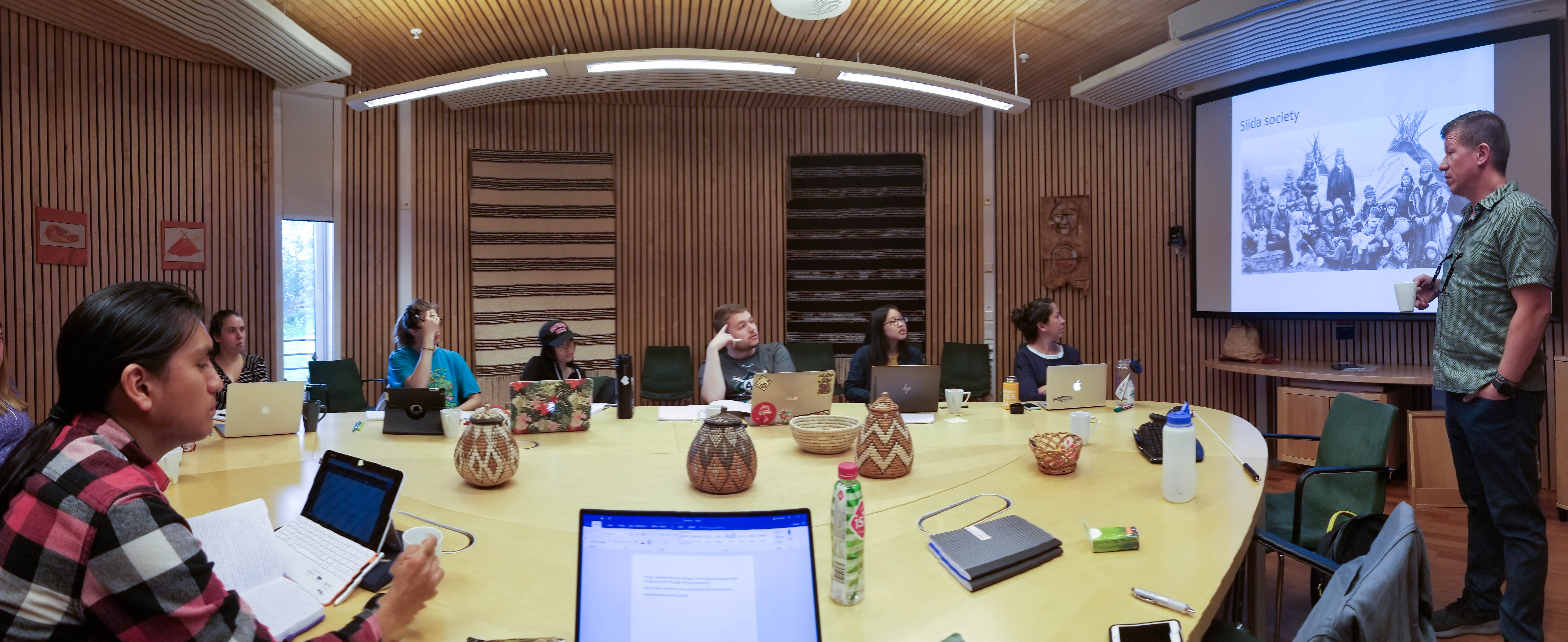
First day of class!
My journey to Sāpmi was atypical and full of anxiety that is outside of what people are expected to feel before travelling internationally. Of course, I was nervous about the language barrier, the cost of living, making friends, and learning everything that I had hoped for…but some major travel hiccups nearly destroyed any chance I had of even making it to Sāpmi and made those normal anxieties feel quite insignificant.
Long story short, my first plane was seven hours late due to a thunderstorm so I missed my flight from Newark to Oslo. After spending the night wandering around the airport searching for my checked bag after agent after agent sent me one wild goose chase after another, I finally made it to Oslo a day late. I had an hour between landing and catching my final flight to Tromsø, and the folks to attach the bridge to the plane were having difficulties for thirty minutes. I made it to my final flight just in time and enjoyed one of the most scenic flights I have ever been fortunate enough to witness.
Once in Tromsø, I found myself waiting at the baggage claim for a checked bag that never arrived. It has been nearly one week without my backpack with tent, sleeping bag, vitamins, clothing, and all of the other items that would enable me to feel comfortable in a foreign land. Nearly all of the things that make me feel “at home” are potentially never going to enter my life again. I hope to have them returned soon because I leave in three days for the international indigenous music festival, Riddu Riddu, where camping is essential.
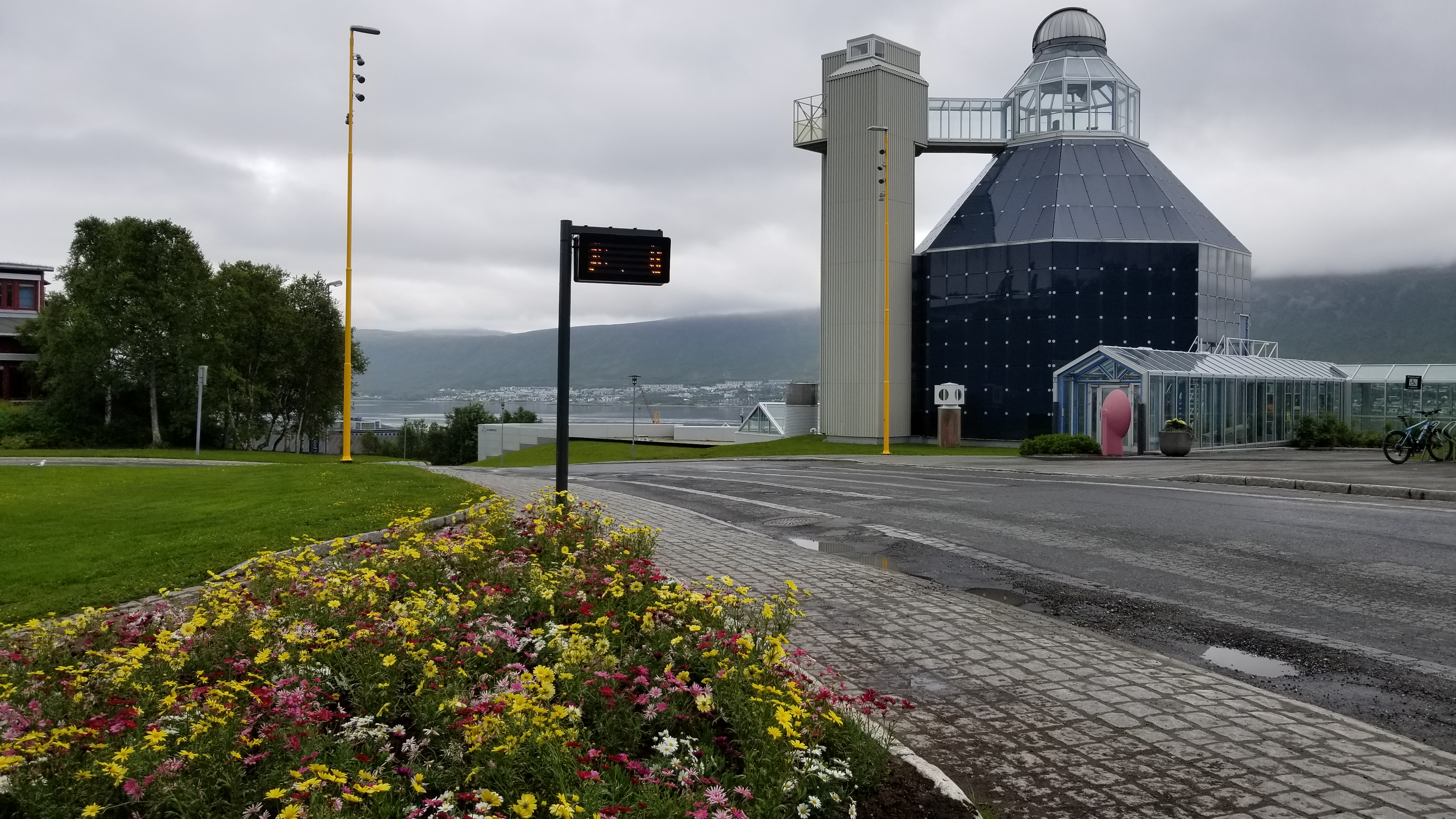
View of the planetarium, mountains, and harbor from the bus stop.
However, I did not come to Sāpmi to worry about my checked luggage and be filled with anxiety. So what if all I have are sweatpants? I’m in Sāpmi as a scholar and Gilman blogger! These things are completely out of my control at this point, and accepting when you do not have control is worthwhile endeavor if you aim to become a calm, low maintenance, and self-actualized individual. It was finally time to experience all that this place has to offer, this is what I have been looking forward to for months.
- One word every student must learn – Sterk means Strong!
- Finding your way along the hiking trails can be challenging if you do not know Norwegian.
Culture shock set in when I had to do simple day-to-day tasks like getting a new SIM card and buying groceries- everything is written in Norwegian, the currency is in krones, and nearly every brand is one that I have never seen before. Sure, everyone here speaks English as well as two other languages, so asking for help isn’t impossible to someone like me who knows absolutely no Norwegian. But am I really going to ask someone how Frukt isTe vannmelon juice tastes? No way, there’s only one way to find out! Sweet cheese? Lemme at it! Wait, grocery stores aren’t open on Sunday? I can’t purchase alcohol after 6pm on weekdays and 3pm Saturdays? The university that is hosting me has its own ski jumps, planetarium, and botanic garden. Our dorms rooms have a sauna, but a bottle of Coca-Cola will cost you $9. The sun doesn’t set? That’s right, we have 24 hours of daylight in the Sāpmi summer. Things are different, but I think I love it!
One of my main goals outside of my academic pursuits is to meet as many locals as possible and make long lasting friendships. I have already been getting along with that goal very well, as I managed to meet a graduate student majoring in plant ecology from Spain. By chance we had breakfast together in the dorms, and then lunch, and then he invited me out with him and his friends. I spent the evening with wonderful new friends, exploring the town and making small talk with anyone we could. There was a rumor that Norwegians can be introverted and standoffish, but I have yet to experience that quality in a single person I have approached.
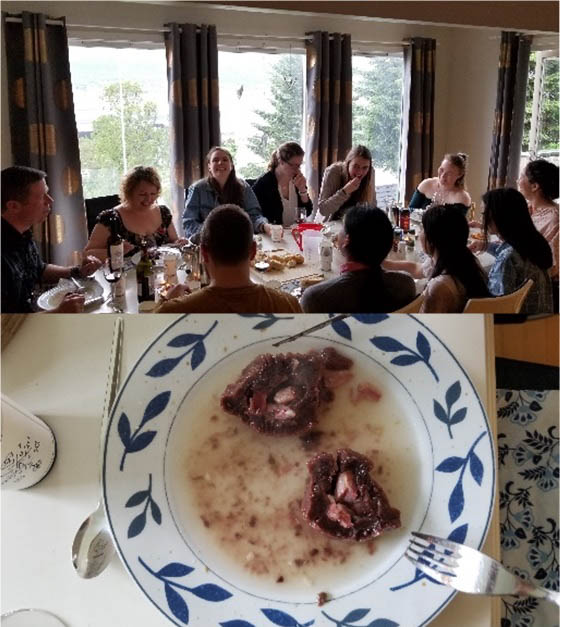
Traditional meal at Lisa’s home with new friends and colleagues.
Apart from our course lectures presented by both University of Washington professors as well as UiT (The Arctic University of Norway Norwegian: Universitetet i Tromsø) literary scholars, my study group was invited to a traditional Sāmi meal by one of my professor’s colleagues, Lisa, and Lisa’s niece, Aila. She prepared blood cakes for us. What’s a blood cake? It’s basically reindeer blood mixed with meat, spices, something to hold it together, and molded into a sort-of dumpling around a center of diced bacon. As a vegetarian, the idea of a blood cake terrified me.
Did I eat it? Absolutely. How often in my life will I eat blood cakes prepared by a wonderful Sāmi woman whose recipe is only so because she had a mother who taught her what her mother had taught her, and on back through the generations? Were they good? I must say, yes. I ate every bit of it, and it was absolutely delicious while also being unlike anything else I have ever tasted. Not only was it simple nourishment, it was an example of Sāmi identity that has, much like the language, been retained throughout all of their struggles against colonizers.
We spent the rest of the evening drinking wine, sharing our life stories, and learning from Lisa aspects of Sāmi spirituality that I will take to the grave with me, as it would be inappropriate to reveal to the world at large such intimate familial knowledge.
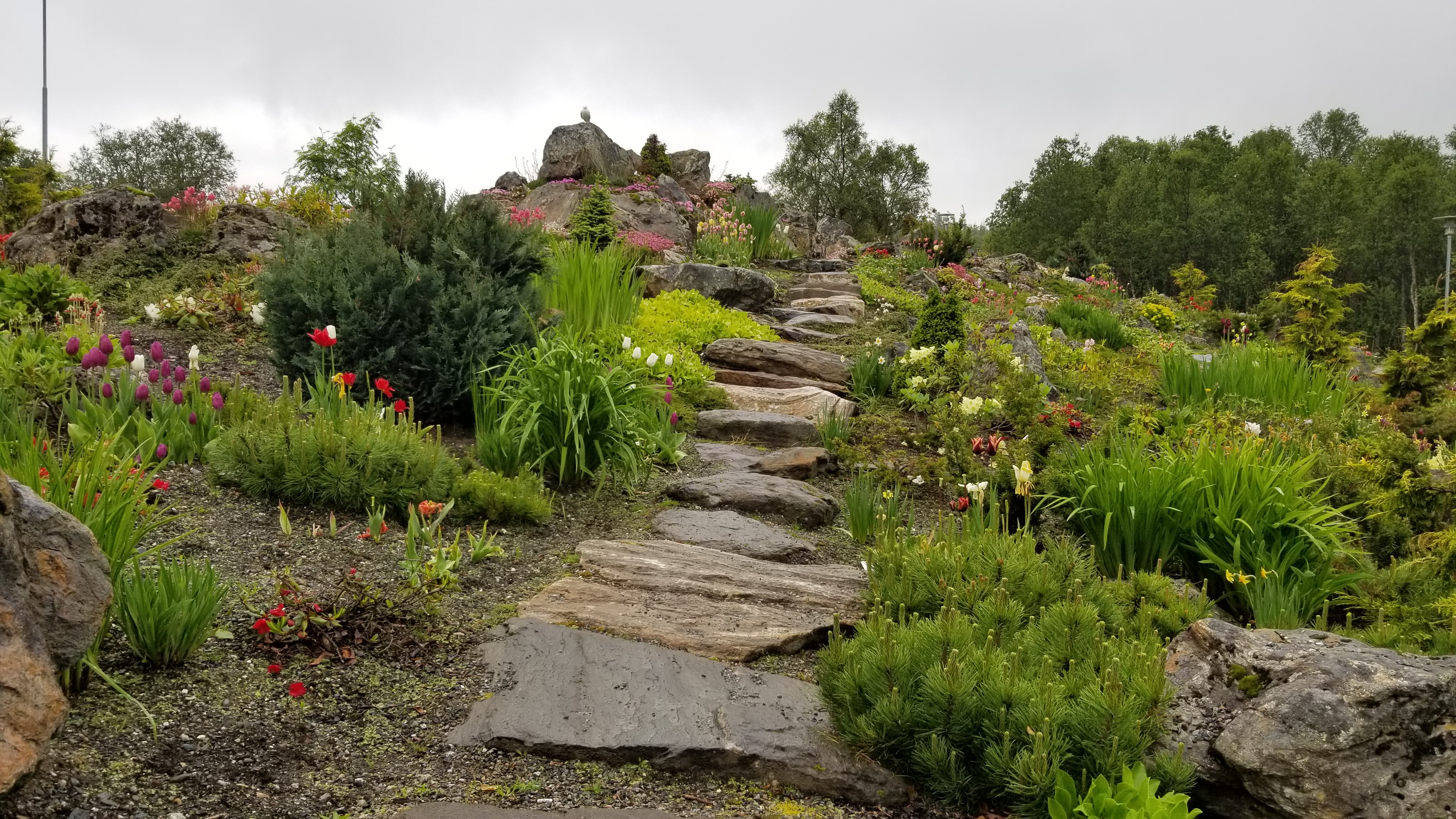
Possibly my favorite garden on campus. One must be careful, the seagulls are rearing young, so they are guarding their turf!
My journey has only just begun, and I am having an incredible time. Sure, I faced some setbacks, but I’ve always thought of myself as resilient and ever-positive. So far this state of mind has served me well this first week in Sāpmi. Stay tuned for my next blog where I will move away from my personal experiences and more into the Sāmi culture as represented at the three-day international indigenous music festival, Riddu Riddu.


